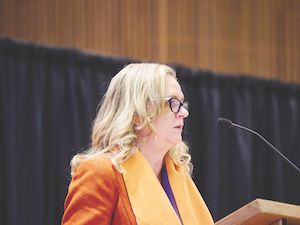
Dear Friends and Allies,
We finally have something big to celebrate for national Foster Care Month! A major shift has occurred in the child welfare system. Without much fanfare, the U.S. Congress passed the Family First Prevention Services Act this last winter. If implemented and funded well, this shift has the potential to be a “game changer” in how we care for our most vulnerable families and children.
Historically, the primary focus of child welfare has been on child safety. Federal limitations on how funding could be used often ended in children being removed from their homes so that families could get the help they needed. The notable contrast of the Family First Act is to prevent children from entering foster care in the first place. Child welfare systems are now charged with a broader scope of work — reforming how federal funds can be spent to include prevention services, offering families services and supports before safety becomes an issue.
In recent years, the number of children and youth in foster care has been rising. The Family First Act embraces the idea that children do best when raised in families. It offers new supports for grandparents and relatives and encourages cross-system, child and family focused partnerships. For children and youth who do need to come into care, it incentivizes states to reduce the placement of children in congregate (group) care.
I am hopeful. Washington state is poised to take full advantage of this new legislation and is already ahead of the curve. The Department of Children, Youth, and Families is based on the recommendations made by the Blue Ribbon Commission on Children and Families which include many of the same preventative and multi-systems supports outlined above.
We are positioned well but must be bold and innovative in our goals and flexible in our approaches. Perhaps most importantly, we need to sufficiently resource our efforts. While the Family First Act is a historic move forward, it did not come with increased federal dollars to individual states. Successful implementation will require more effective leveraging of cross-systems knowledge, practice, and funding. It will require community support to ensure that families facing hardship have variety of support systems to rely on. This community involvement hinges on the engagement of those who will be most impacted by these services — those young people and families with lived experience who know what needs to improve. I look forward to working with our youth advocates at The Mockingbird Society and others in the community as we invest in our shared future.
In celebration of National Foster Care Month,

Annie Blackledge
Executive Director